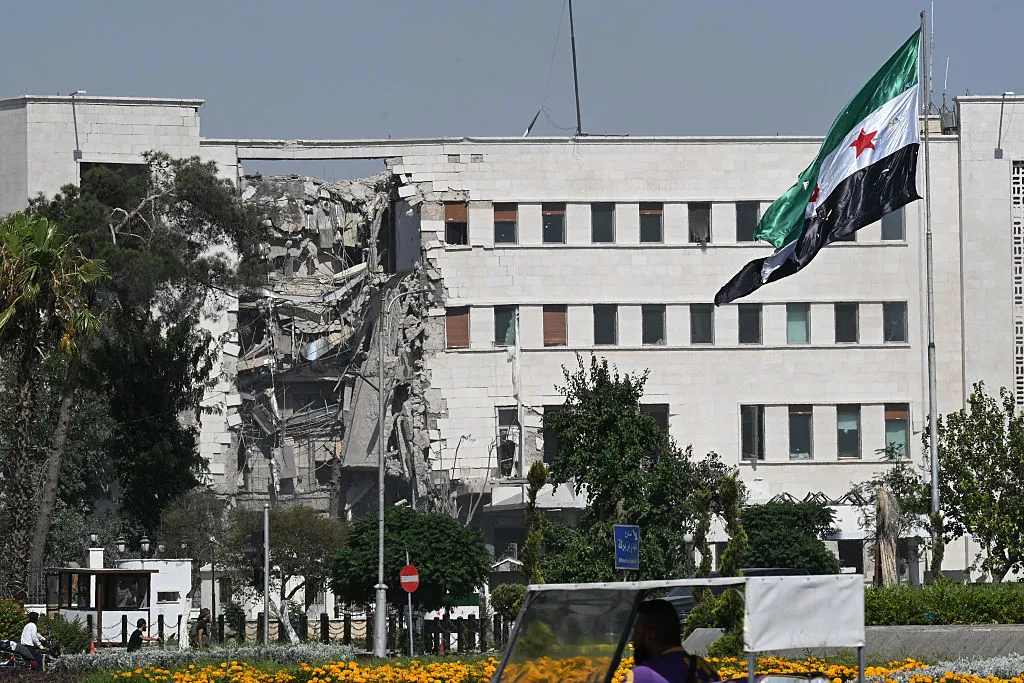Israeli Forces Target Military Sites in Damascus and Suweida
Israeli airstrikes have hit key Syrian government targets in Damascus and Suweida province as violent sectarian clashes continue in the predominantly Druze region. Prime Minister Benjamin Netanyahu declared the attacks were part of an effort to protect Druze populations and eliminate hostile armed groups linked to the Assad regime. The Israeli Defense Forces (IDF) confirmed they struck Syrian military headquarters near the presidential palace, as well as armored vehicles and weapons shipments en route to the south.
Defense Minister Israel Katz stated via social media that the Israeli military would maintain its operations “until hostile forces are neutralized and Druze civilians are safe.” He shared a video of an Israeli strike impacting Umayyad Square in Damascus, showing a news anchor ducking live on air during the explosion.
The Syrian Foreign Ministry condemned the airstrikes, calling them a “flagrant aggression” against Syrian sovereignty and a violation of international law. According to Syrian officials, civilian infrastructure and multiple residential areas were damaged, resulting in several fatalities.
Sectarian Violence and Ceasefire Tensions
Clashes erupted on Sunday between Druze militias and Bedouin tribes, leaving over 300 people dead, according to estimates by the Syrian Observatory for Human Rights. Among the casualties are 69 Druze fighters, 40 civilians, and over 160 members of Syrian government forces. The Observatory also reported that at least 10 government personnel were killed in the Israeli strikes.
The Syrian Interior Ministry announced a ceasefire agreement Wednesday night following negotiations with Druze leaders. It pledged to halt military operations, establish security checkpoints, and reintegrate Suweida into the national framework. However, divisions remain among Druze leaders—while Sheikh Yousef Jarbou endorsed the deal, Sheikh Hikmat al-Hajri, a key figure supporting Israeli intervention, rejected it and called for continued resistance until “the province is fully liberated.”
On the humanitarian front, conditions in Suweida have rapidly deteriorated. Reports cite water shortages, damaged medical facilities, and limited access to treatment for the wounded. The national hospital was reportedly shelled during the clashes, causing panic among civilians and aid workers.
U.S. Secretary of State Marco Rubio expressed “deep concern” over the developments and confirmed ongoing diplomatic discussions with both Syrian and Israeli counterparts to encourage de-escalation. Meanwhile, analysts caution that sustained Israeli strikes risk worsening regional instability, despite Jerusalem’s stated goal of safeguarding Druze communities with deep ties to Israel and the Golan Heights.
As sectarian violence intensifies and foreign military action expands, the fragile ceasefire and its acceptance across factions will be critical in determining Syria’s path forward—particularly in the deeply fractured Suweida province.







